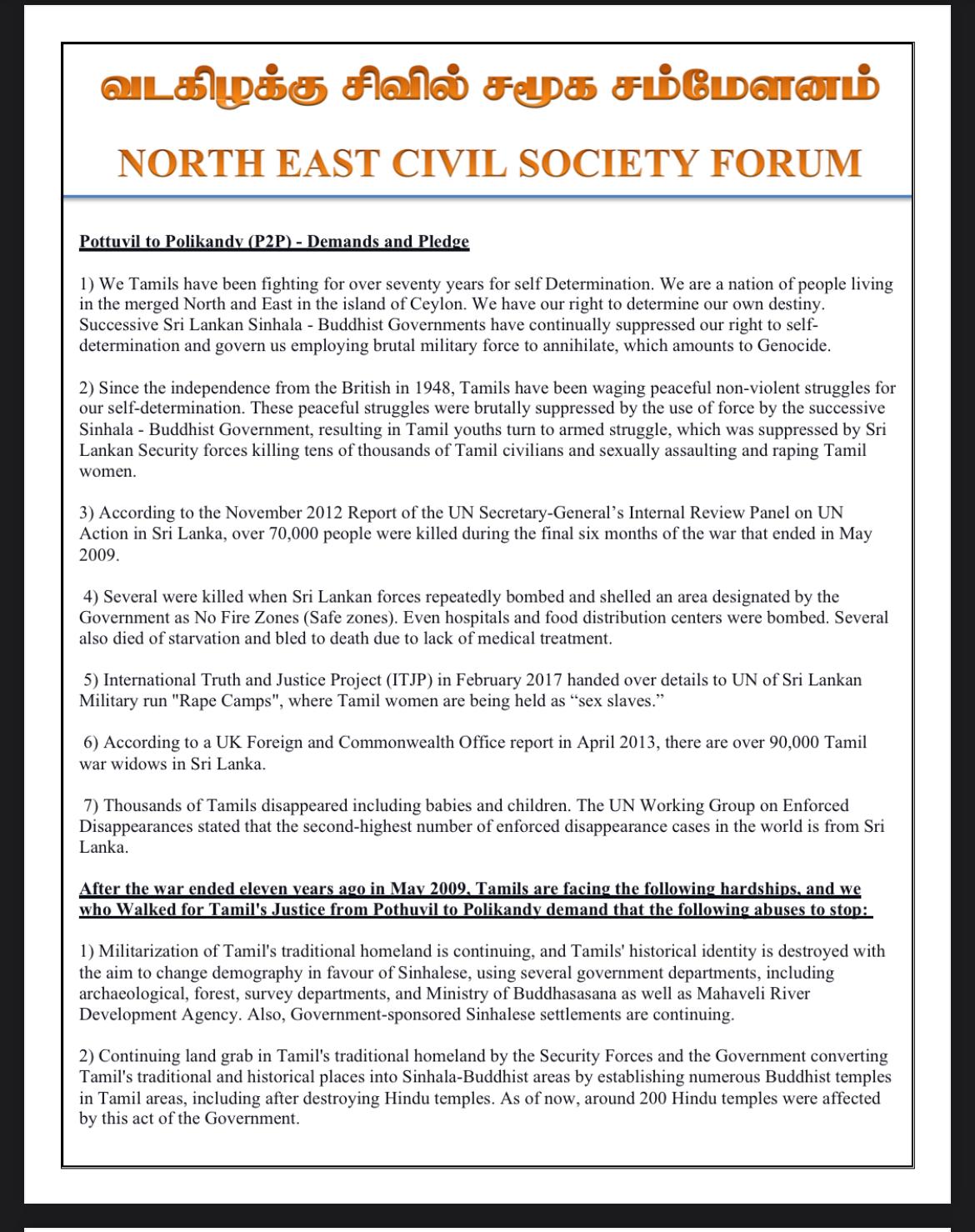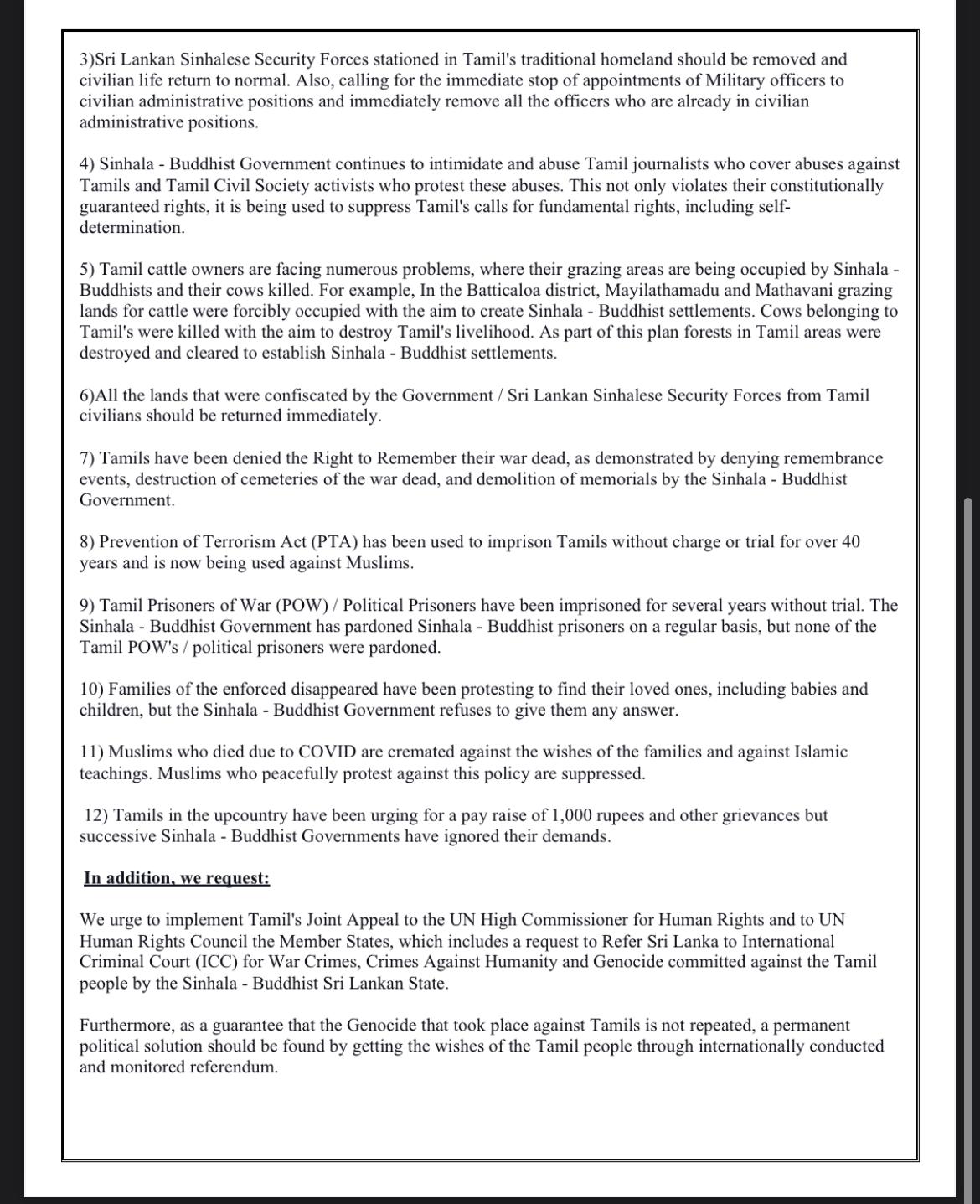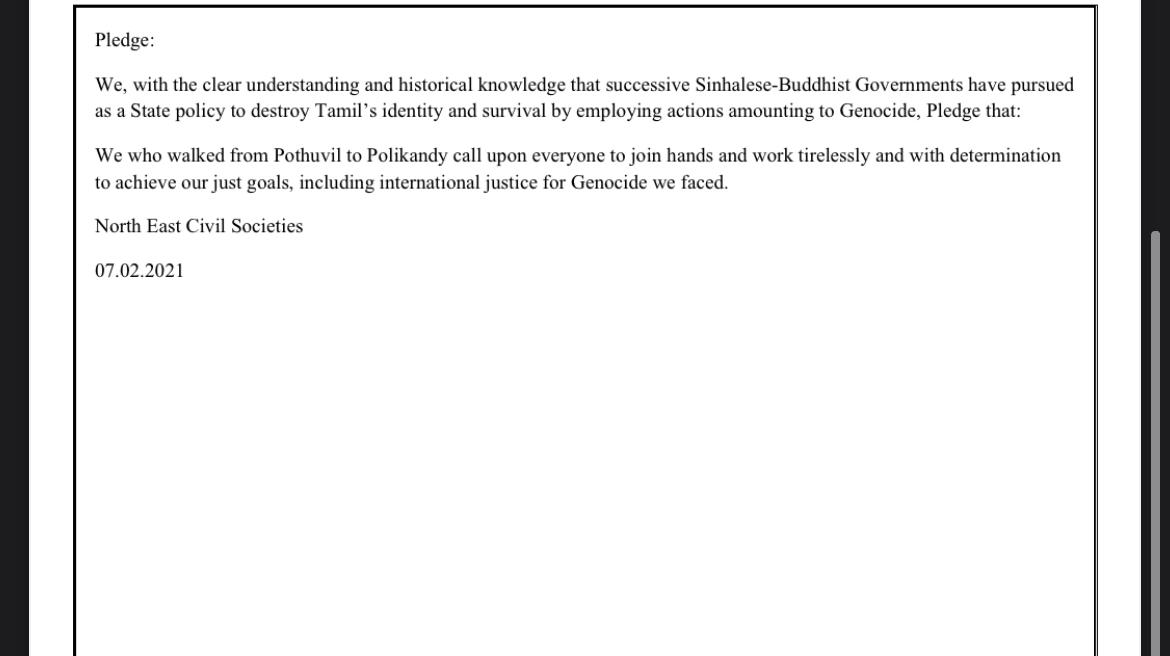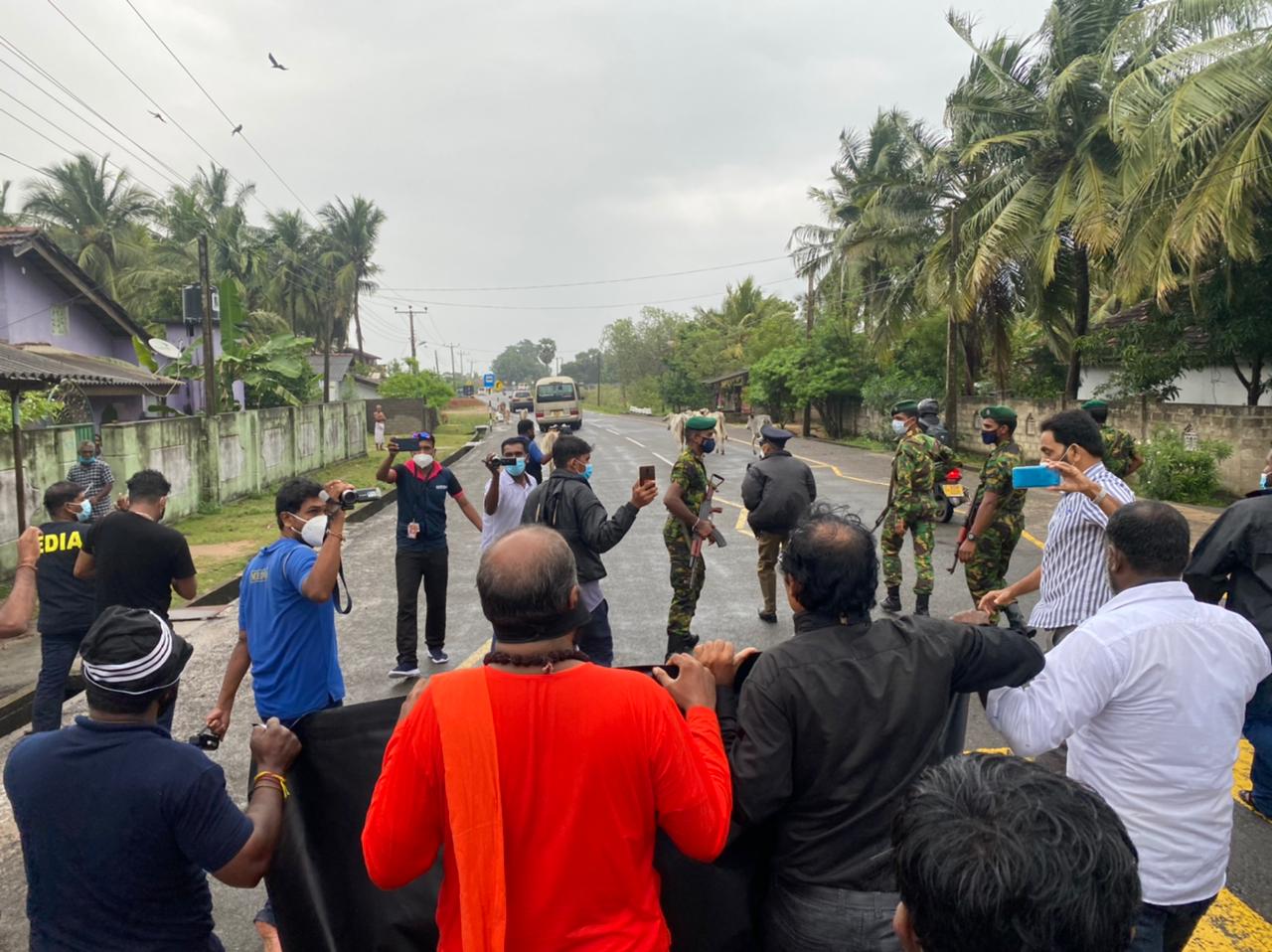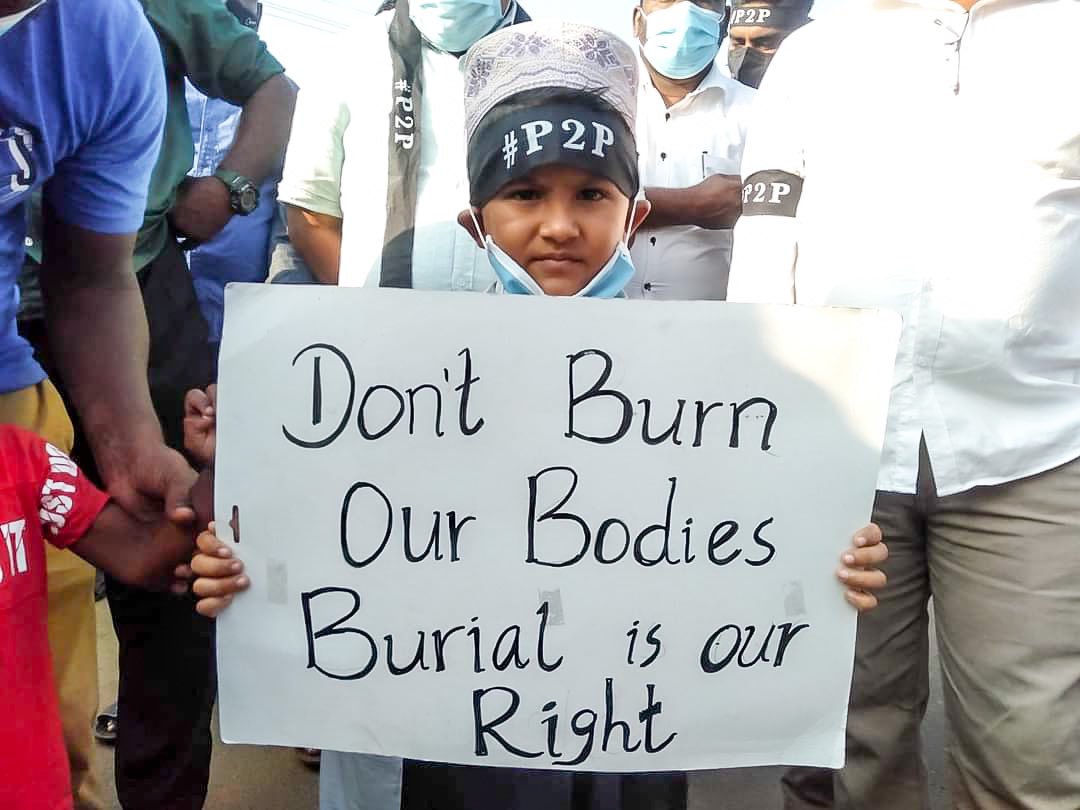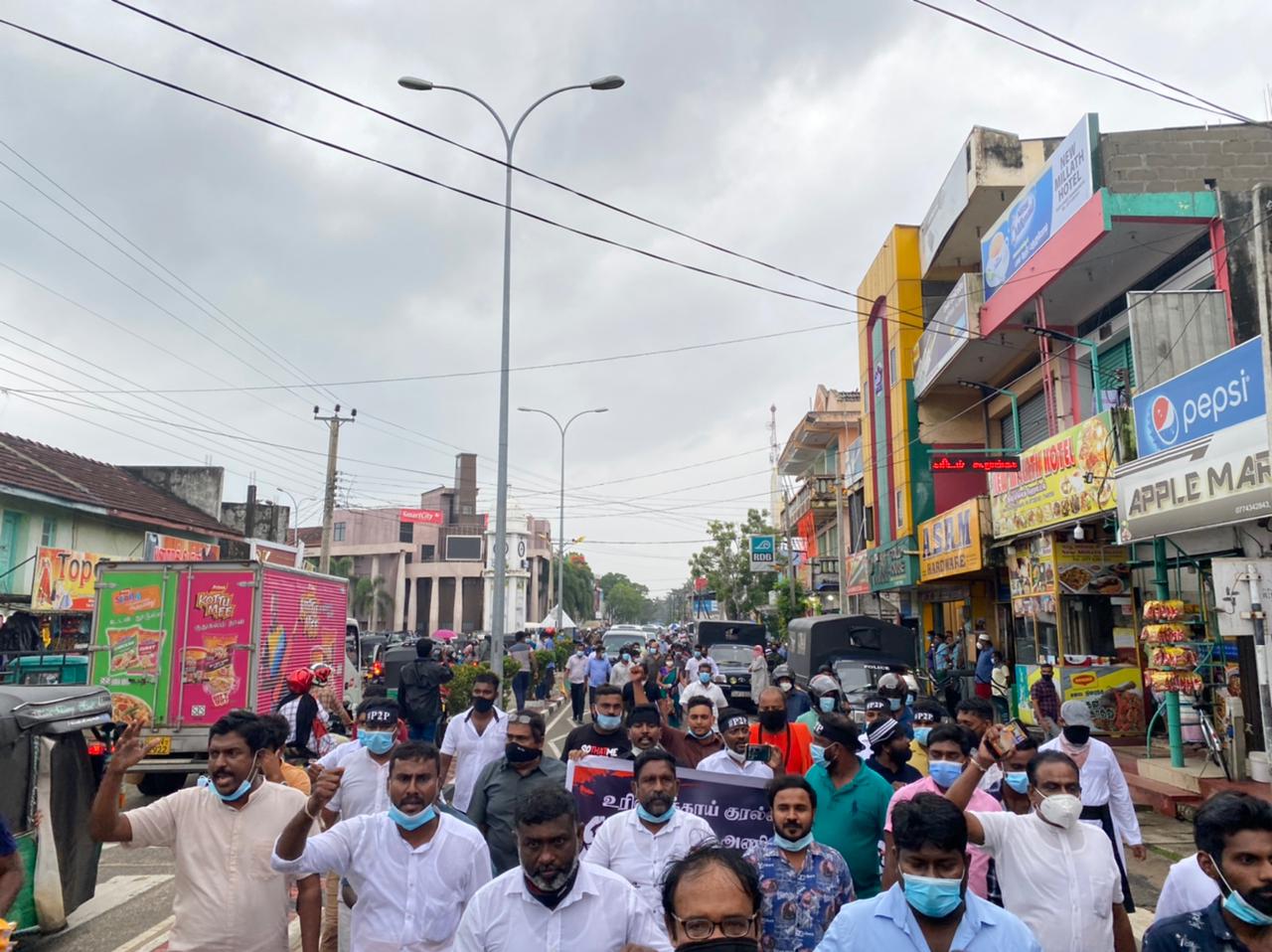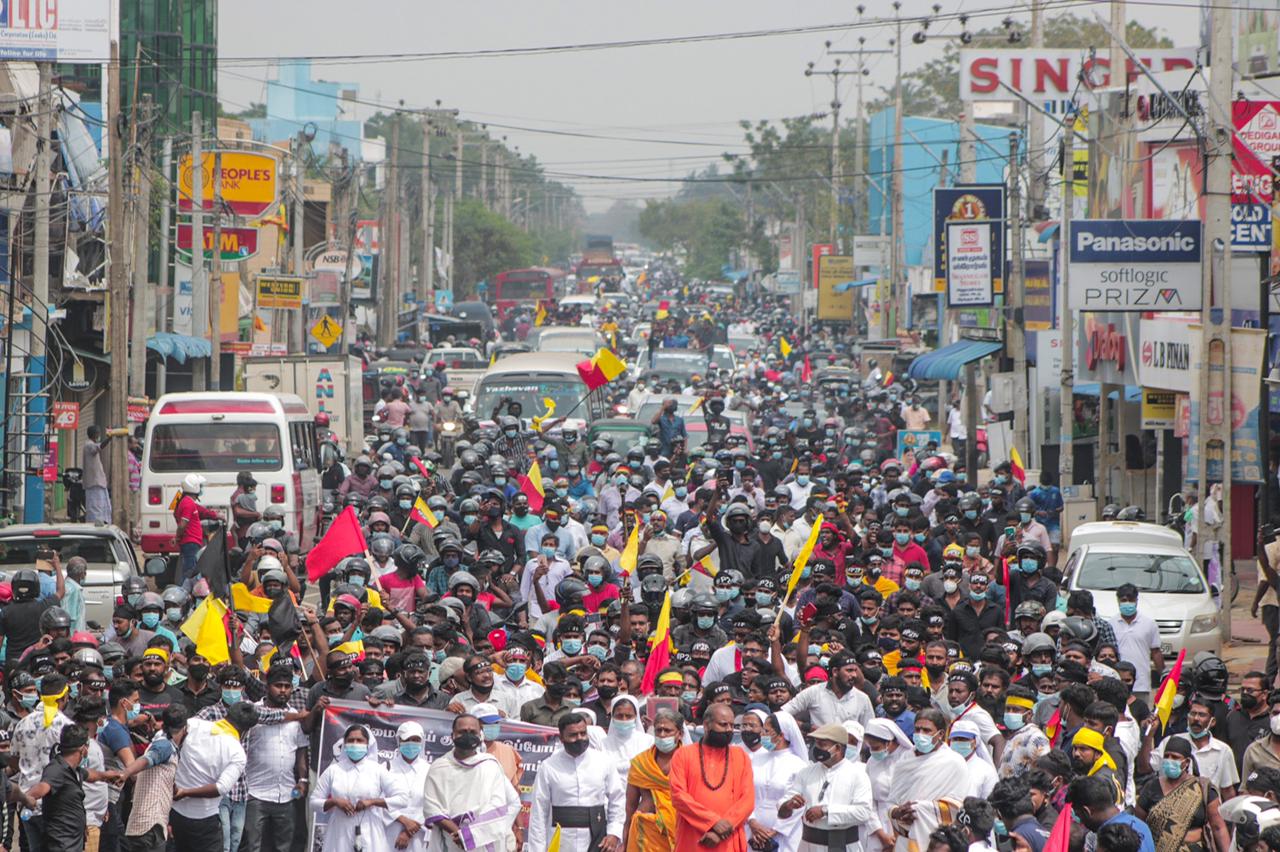
This week Tamils and Muslims across the homeland united in a march for justice, calling on the international community act to protect their rights. The protests which have been extended due to disturbances caused by Sri Lanka’s security forces took place from Pottuvil in Amparai to Polikandy in Jaffna.
Despite intimidation from Sri Lankan security forces and bans imposed by Sri Lankan courts, the rally lasted for five days and passed through each district in the Tamil homeland.
Organised by civil society organisations across the North-East, the key demands are:
1. A traditional Tamil homeland;
2. The right to self-determination for a Tamil nation and
3. Tamil as a distinct nation needs to be recognised.
4. International justice for the genocide perpetrated and still being committed against Tamil people by the Sri Lankan state.
Below we examine some of the core demands put forwards by the demonstrators.
Ending militarisation of the Tamil homeland
This military occupation of the North-East has allowed for the government to establish luxury hotels and businesses which undercut the livelihood of locals as well as to erect Buddhist monuments. Since 2009, the military has occupied vast expanses of land across the North-East and continues to be involved in civilian activities.

For example, since occupying the Jaffna peninsula in 1995, the Sri Lankan military has continued to exert its large presence in the region and continued to involve itself in civilian activities as well as hold on to large swathes of land.
Ending land grabs and Sinhalisation
![]()
The erection of Buddhist viharas and the destruction of Hindu monuments in Tamil and Muslim regions has been conducted under the pretext of archaeology.
Protesters were joined by a range of religious leaders demanding that Sri Lanka end its intrusion on their religious practices and safeguard their freedom of religion.
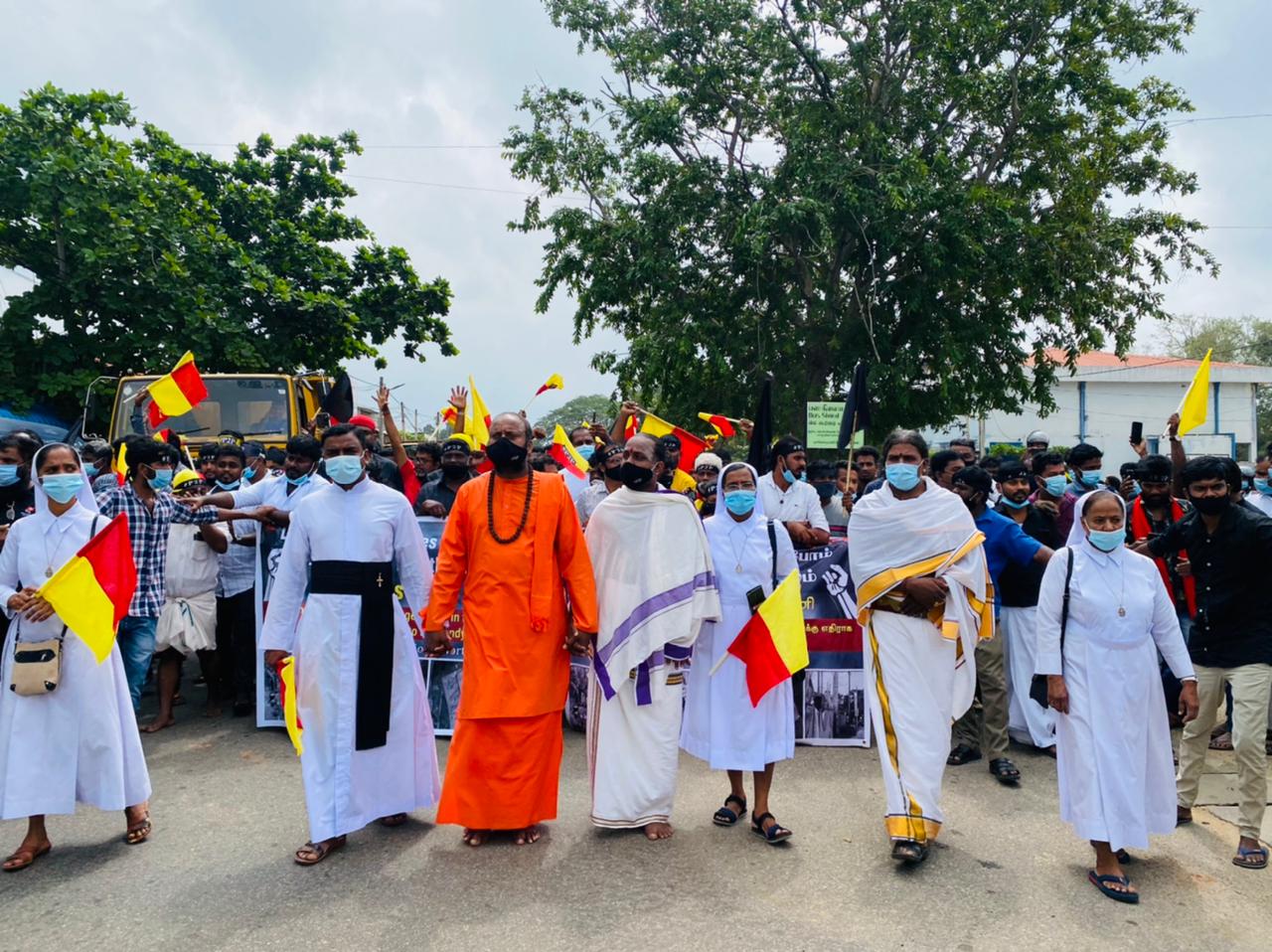
End the military occupation of the Tamil homeland
Despite over a decade passing since the end of the armed conflict Sri Lanka’s continues to occupy vast swathes of the North-East which a principal contributor to continued displaced. As of 2017, an approximate 40,000 people remained internally displaced in the country, a majority from Jaffna. In Mullaitivu, it was reported in 2017, that for every two civilians there was at least one soldier.
Just last week, a joint press release published by the International Truth and Justice Project (ITJP) and Journalists for Democracy Sri Lanka (JDS) reported a staggering number of retired and serving military officers being appointed to key administrative posts, under what it termed "unprecedented militarisation".
End the targeting of journalists and civil society activists
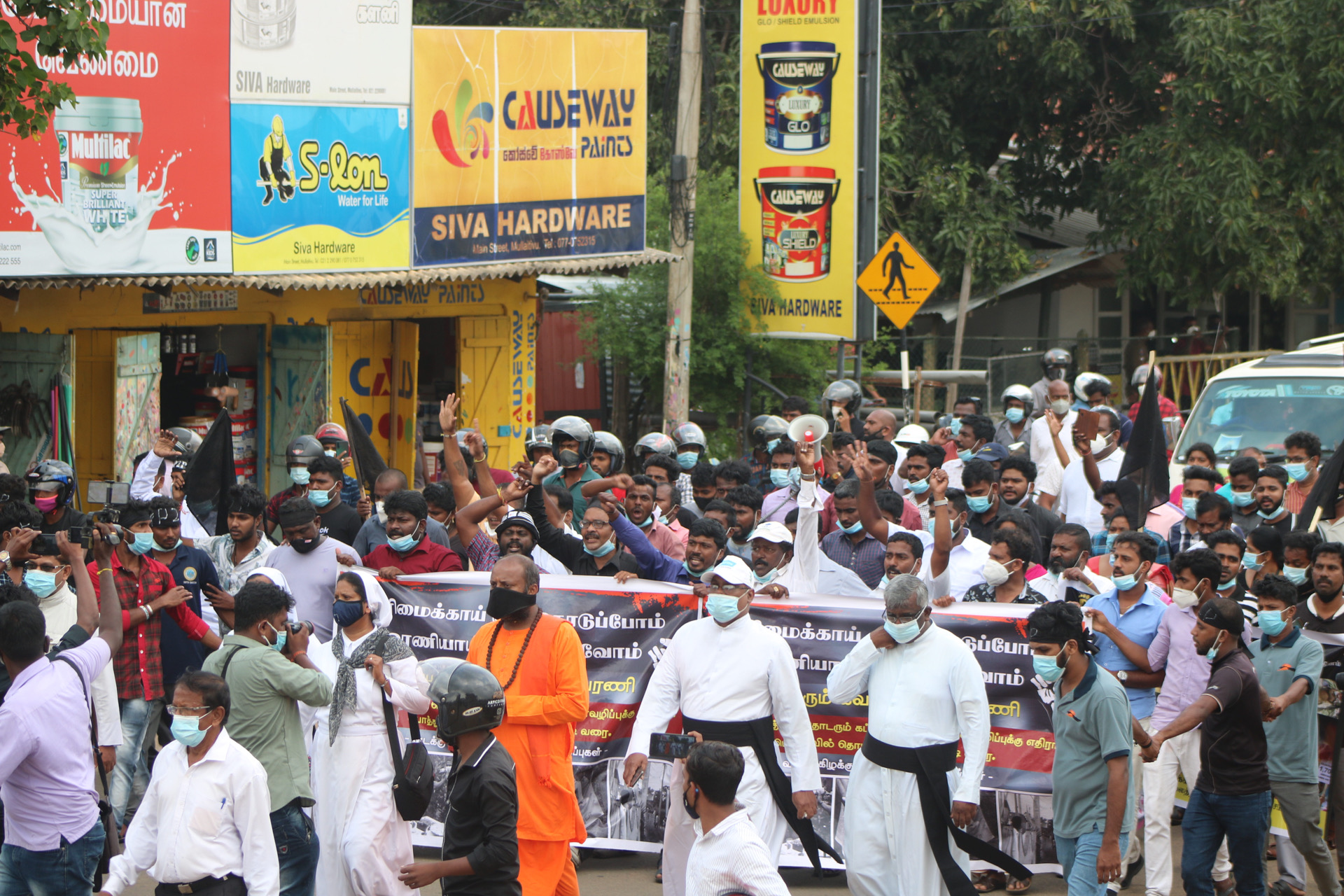
A key demand of the protesters is the protection of journalists and civil society activists who have increasingly come under threat. Last month, Human Rights Watch highlighted the worrying developments of arbitrary punishments, a climate of fear and self-censorship amongst lawyers, journalists and victims who challenge or criticise the Rajapaksa administration.
Safeguard Tamil farmers' rights
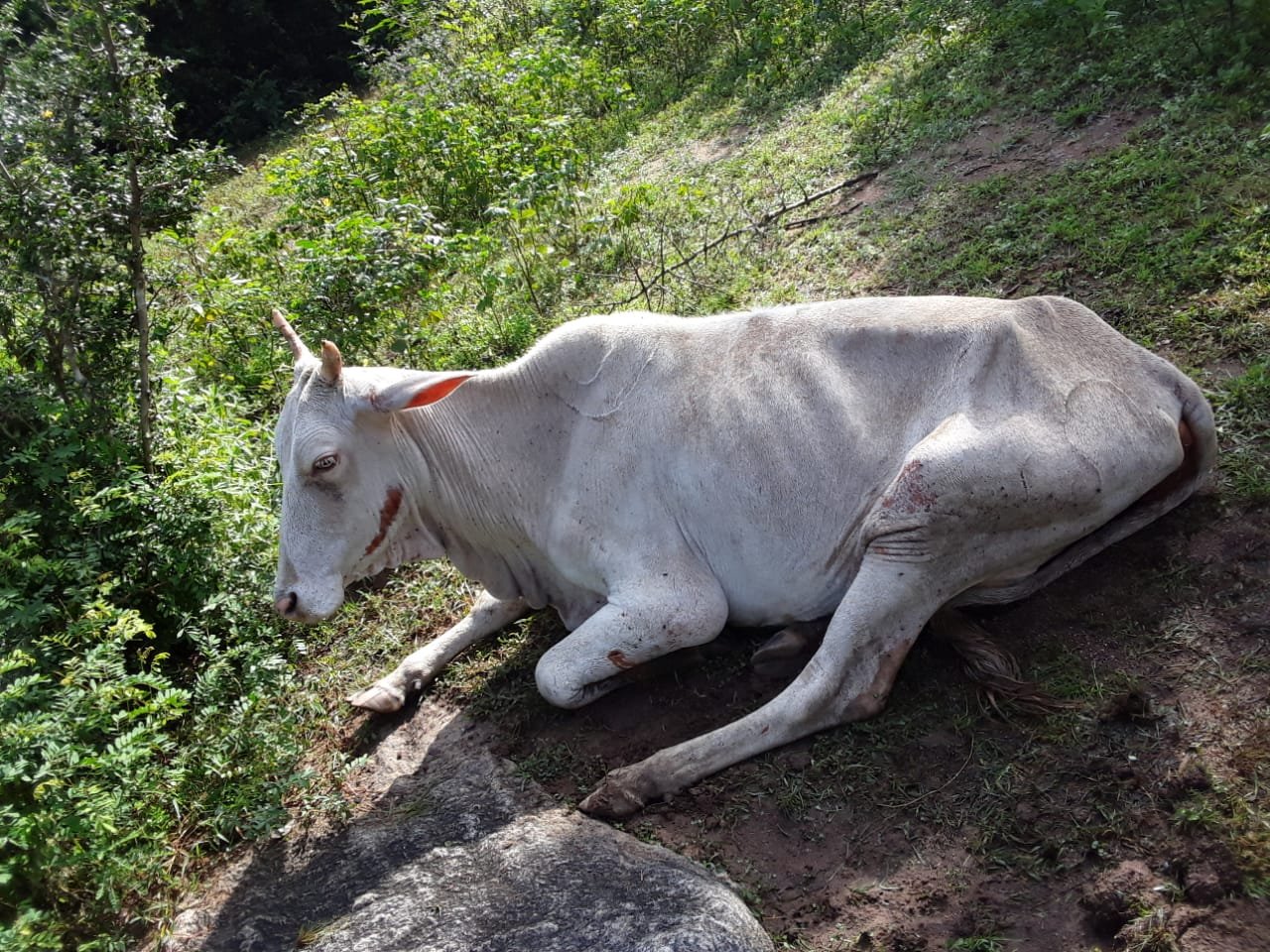
The protest demands also shed light on the plight of Tamil farmers and plantation workers. Over the years expansive land grabs which have led cattle to starve; attacks by the military and Sinhala farmers relocated to the North-East through government-sponsored settlement programmes.
Protect the rights of Tamils to remember their war dead
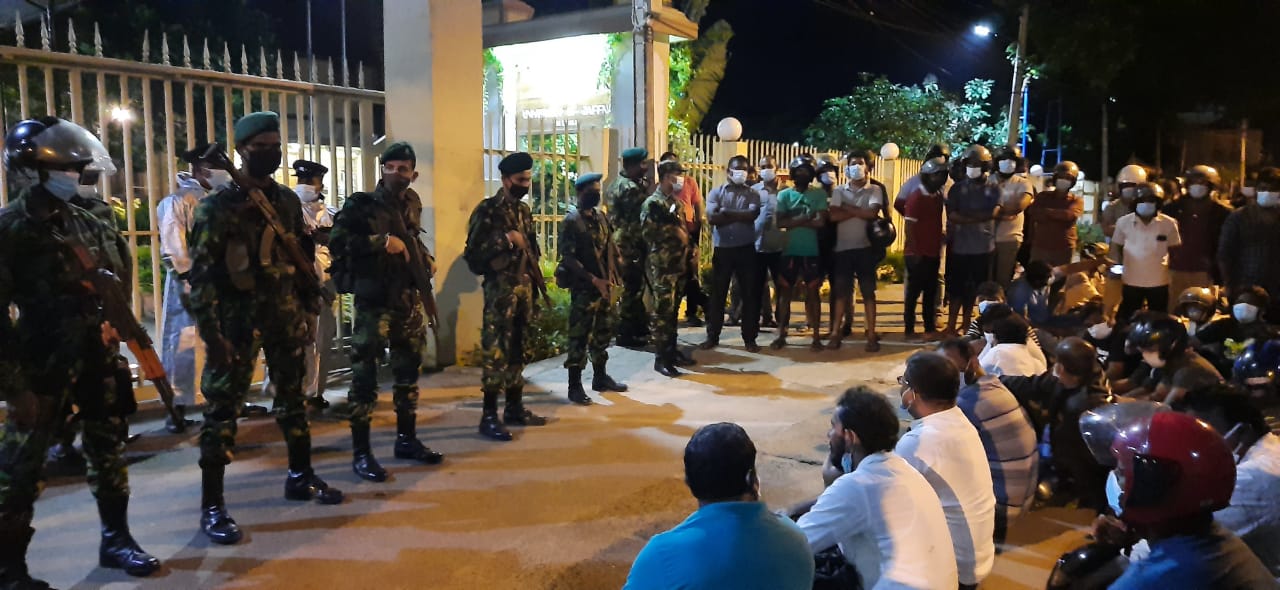
Another key demand of protesters was the protection of the right to remember their war dead. This follows the destruction of the Mullivaikkal memorial in Jaffna. In September 2020, the UN Special Rapporteur on the promotion of truth, justice, reparation and guarantees of non-recurrence, Pablo de Greiff, highlighted how the military prohibited memorialisation’s which posed “serious psychological harm”.
In his report he also highlighted that:
“Grieving families have expressed the need to bury or destroy photographs of their deceased loved ones in uniform for fear of harassment by the security forces”.
During Mullivaikkal memorial last year, those conducting memorialisations in private were threatened and intimidated by Sri Lanka’s security forces. During the protests, demonstrators took a moment to commemorate the sacrifice of Lt Col Thileepan who over 33 years ago fasted to death as he demanded that the Indian government honour its pledges it made to the Tamil people.
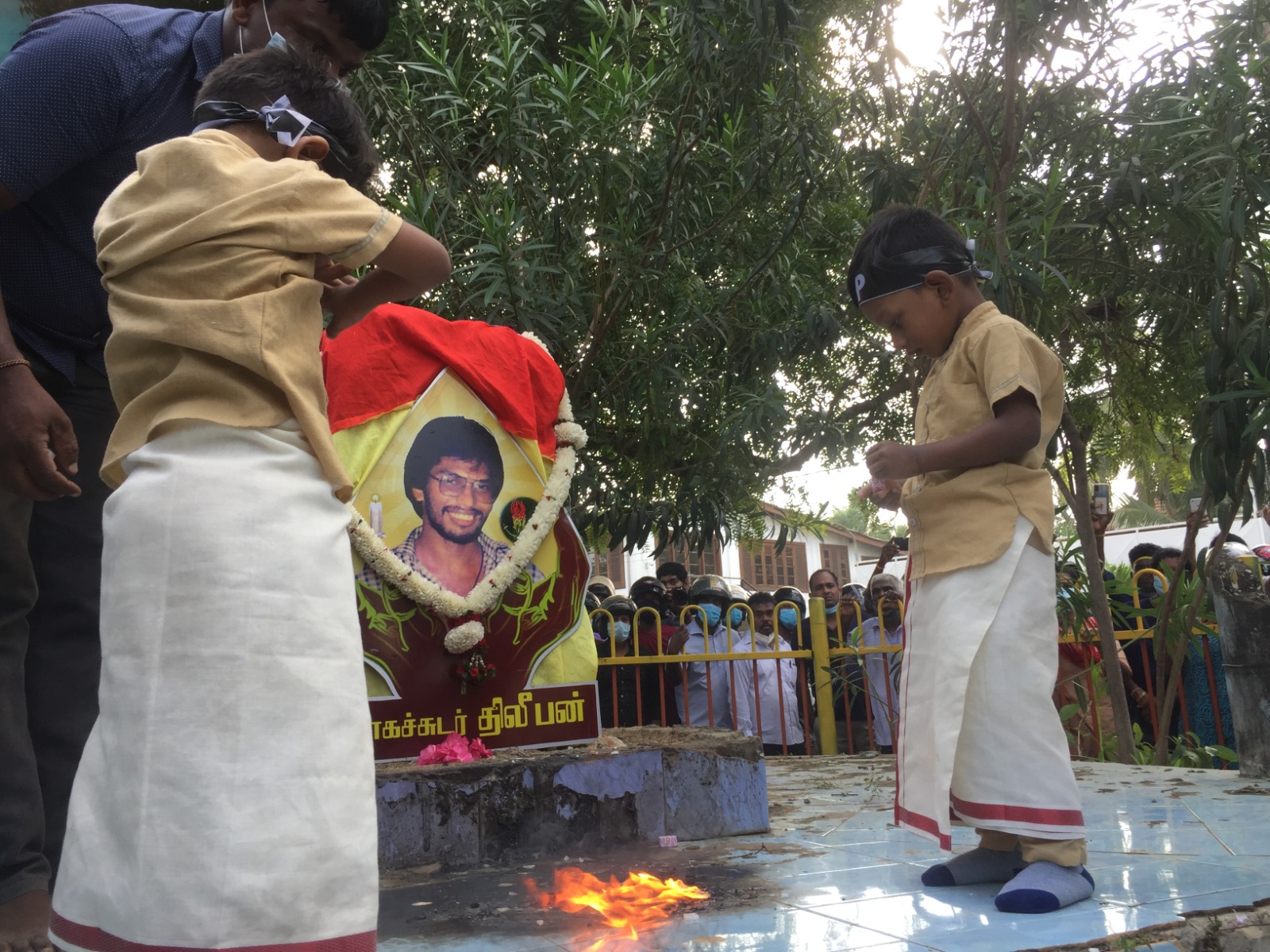
Repeal the Prevention of Terrorism Act
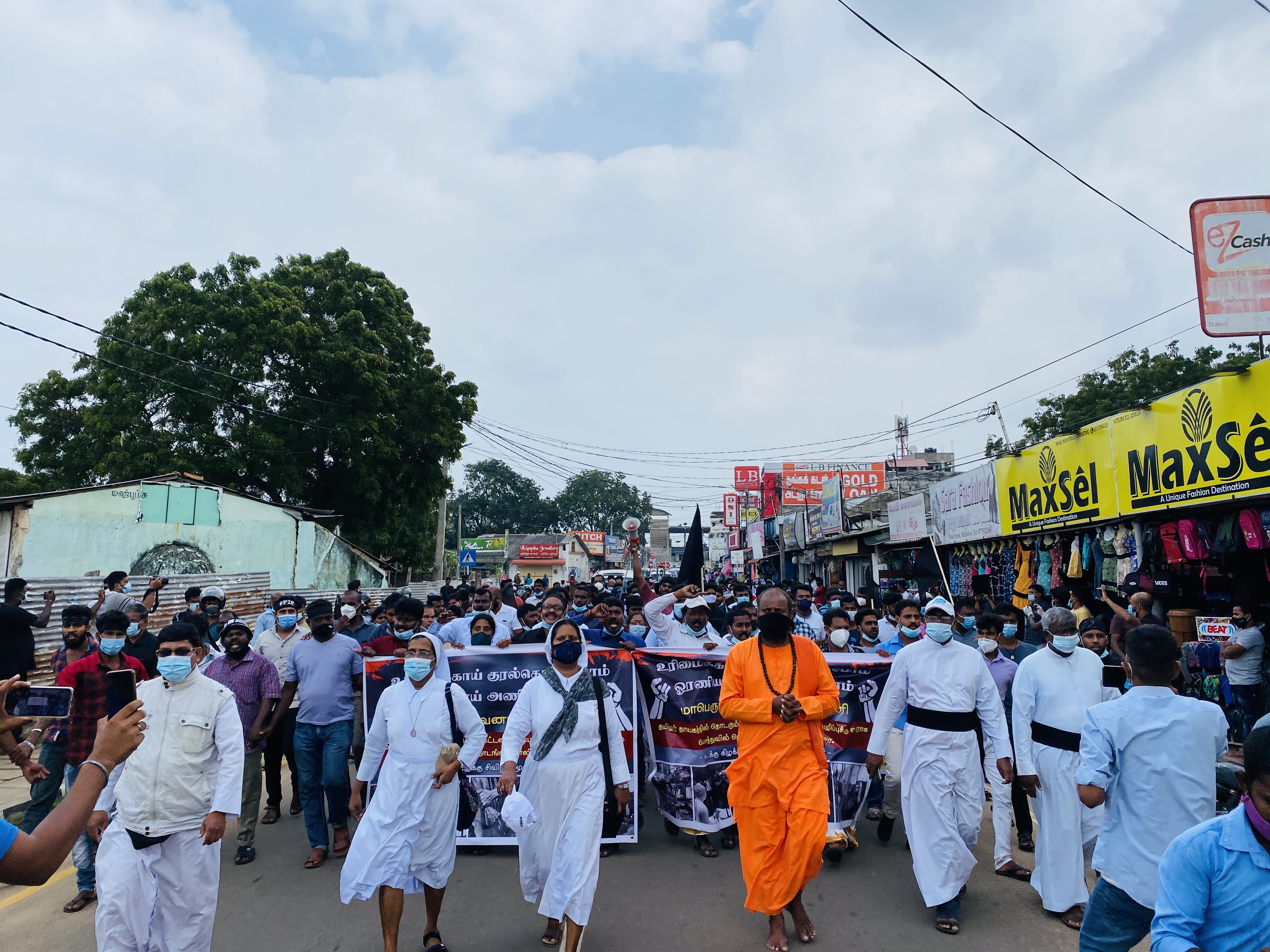
Demonstrators are also calling for the repeal of the Prevention of Terrorism Act which has been internationally condemned. According to Sri Lanka’s Former Human Rights High Commissioner, the PTA had been historically and disproportionately used against “Tamils, dissenters, those critical of the government of the time, and anyone calling for accountability for human rights violations”
Protestors highlighted how the very same draconian legislation is being used against Muslim community.
End forced cremations
Tamils and Muslims unified throughout the protest to demand an end to the government’s draconian and internationally condemned policy of forced cremations which is seen to violate Muslims’ religious rights.
Despite World Health Organisation officials and Sri Lanka’s own Medical Association, maintaining that there is no medical basis for the government’s policy, Sri Lanka’s Foreign Minister has claimed it is not discriminatory and based on science.
Responding to the continued policy, UN special rapporteurs have condemned the government’s decision stating it was “based on discrimination, aggressive nationalism and ethnocentrism amounting to the persecution of Muslims and other minorities in the country”.
Release Tamil political prisoners
Despite continued protests and health concerns, Sri Lanka has refused to release Tamil political prisoners. At least 64 Tamil prisoners incarcerated in prisons across the island, including political prisoners, have contracted the coronavirus.
Last year, the longest-serving Tamil political prisoner, Sellapillai Mahendran, died in custody. He was just 17 when he arrested in 1993.
The issue of political prisoners has been highlighted for decades with regular protests. Just this week, religious leaders urged Sri Lankan president Gotabaya Rajapaksa to release all the Tamil political prisoners and grant them amnesty as the increasing threat of COVID-19 in prisons threatens their welfare.
Provide answers to the families of the disappeared
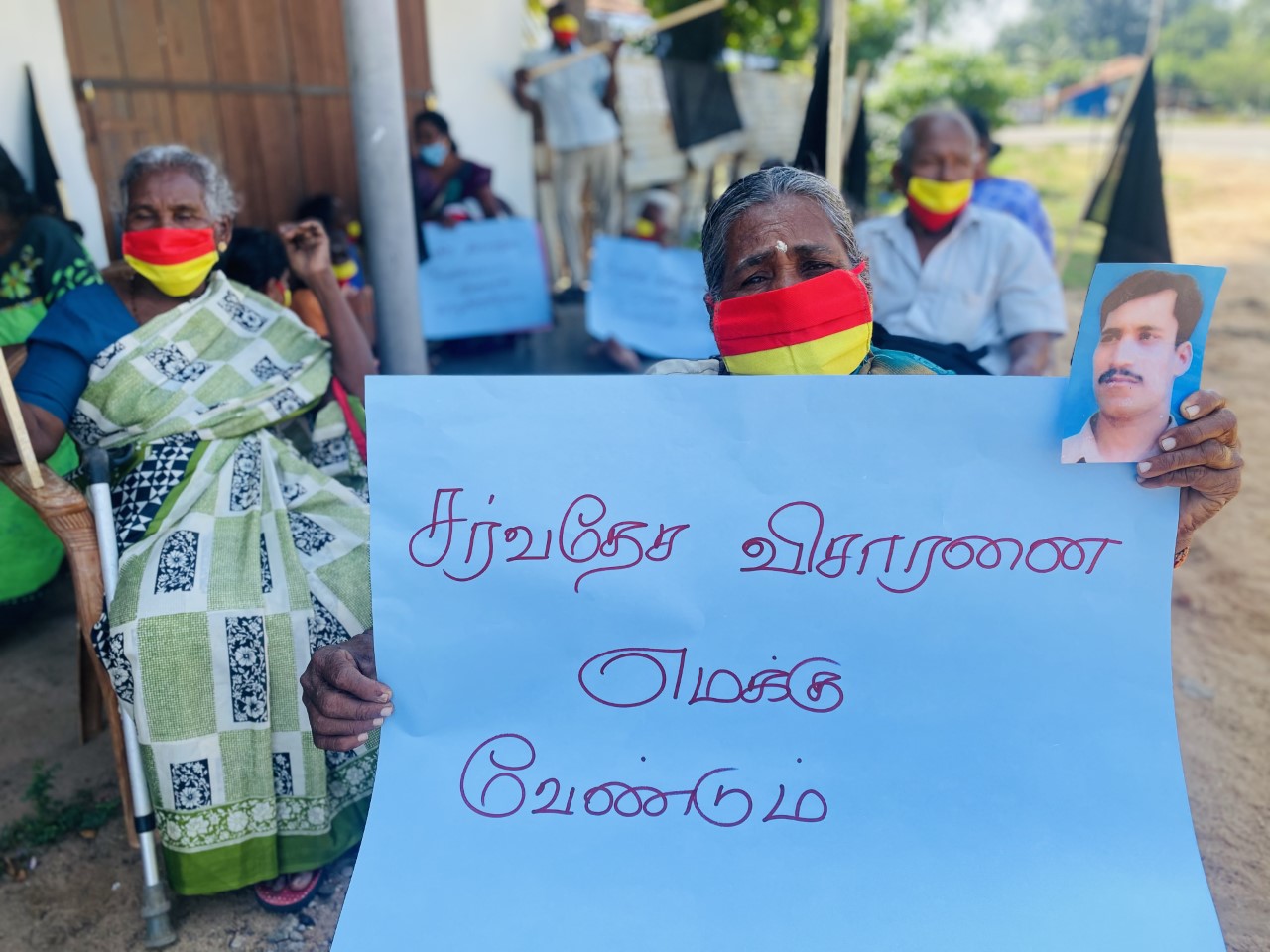
Tamil families of the disappeared across the North-East have launched a hunger strike demanding to know the whereabouts of their loved ones.
According to the United Nations Working Group on Enforced or Involuntary Disappearances, Sri Lanka continues to hold second-highest number of enforced disappearances in the world.
Many of those who have been campaigning to know what happened to their loved ones have sadly passed away without receiving an answer.
Raise the wages of Tamil plantation workers
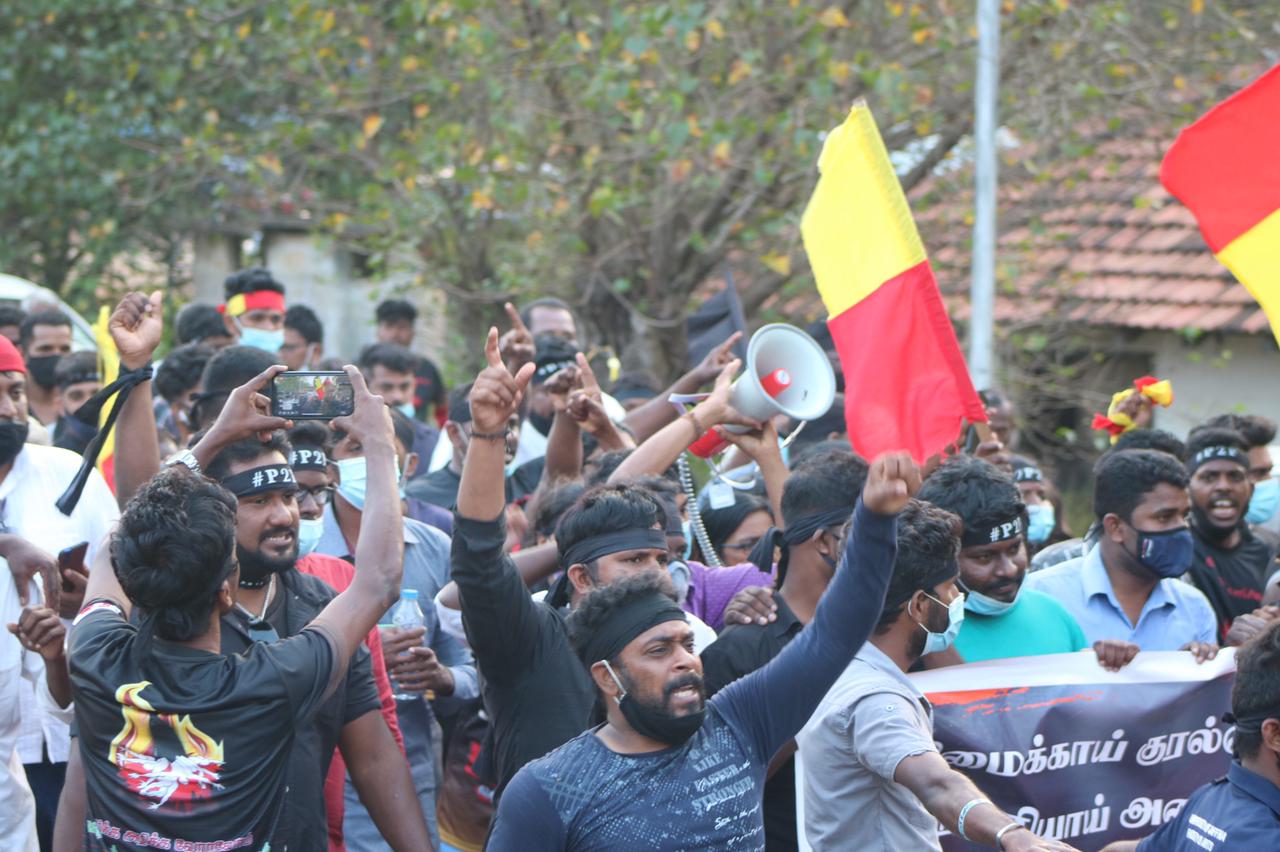
According to a 2019, Thomas Reuters Foundation investigation, in some tea estates, plantation workers earned as little as 26 rupees a day (£0.11). Historically, Indian Tamils who came over as part of an indentured workforce have faced a great deal of discrimination, only securing citizenship in 2003.

